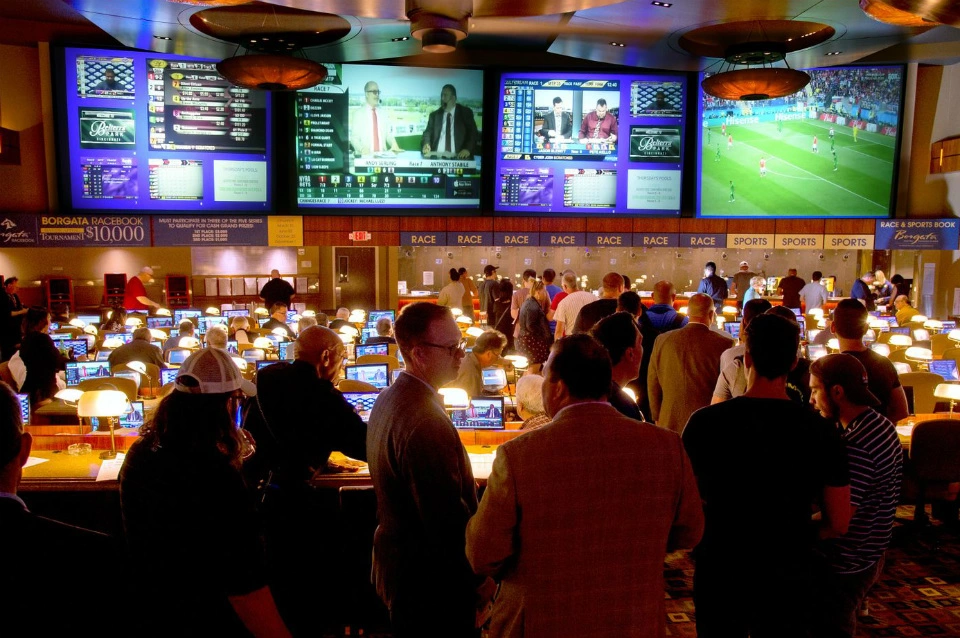 A cardroom situated in Rancho Cordova has joined a legal action seeking to stop a sports betting legalization initiative backed by some Native American tribes in California.
A cardroom situated in Rancho Cordova has joined a legal action seeking to stop a sports betting legalization initiative backed by some Native American tribes in California.
At the beginning of the week, Cal-Pac Rancho Cordova, which currently runs the Sacramento County-based Parkwest Casino Cordova and Inglewood-based Hollywood Park Casino revealed that they had brought a class-action lawsuit to the Superior Court of Los Angeles.
The recently filed legal action challenged the legality of a proposed measure for the state’s ballot in November that was brought by a number of Native American tribes. The proposal seeks to make sports betting at tribal Californian casinos and racetracks legal. Currently, the Yocha Dehe Wintun Nation that owns and runs the Brooks-based Cache Creek Casino Resort is part of the group supporting the aforementioned sports betting initiative.
The legal action, which was filed at the beginning of the week, alleges that the sports betting legalization proposal breaches a piece of legislation requiring that state ballot initiatives involve one subject only.
According to Deven Kumar, the General Manager of the Hollywood Park Casino, the sports betting ballot initiative is aimed at secretively destroying competition with cardrooms in the state of California by providing tribal casinos with more rights, including the right to file a series of lawsuits against local cardrooms. Mr. Kumar noted the initiative process was designed neither for this purpose nor for what the initiative was advertised to do.
Several Legislative Measures Seeking to Make Sports Betting Legal Unveiled in California
 This is the second time the two cardrooms are making an attempt to stop the initiative. In December last year, they filed a lawsuit with the California Supreme Court to urgently hear the issue. The court, however, decided not to pursue the matter further. Now, the cardrooms are trying to make it to the Supreme Court the slow way.
This is the second time the two cardrooms are making an attempt to stop the initiative. In December last year, they filed a lawsuit with the California Supreme Court to urgently hear the issue. The court, however, decided not to pursue the matter further. Now, the cardrooms are trying to make it to the Supreme Court the slow way.
The spokesperson for the tribal-supported Coalition for Safe, Responsible Gaming – Kathy Fairbanks – released a statement, saying that the 2 cardrooms constituted as plaintiffs must have been desperate to avoid the responsible gambling rules in California state’s laws. Ms. Fairbanks further noted that the case had recently been dismissed by the California State Supreme Court, so the tribes were confident that the lower court would eventually issue the same decision, too.
The legal action is the latest development in the effort of making sports betting legal in the state of California, with cardrooms, Native American tribes and operators of online sportsbooks all pushing with their proposed pieces of legislation. It all started in 2018 when the US Supreme Court decided to lift the federal ban on sports betting services and opened the door for states to individually decide whether to allow it or not.
So far, the local Indian tribes have managed to make the biggest progress, as their measure has already ensured enough signatures to become eligible for the state ballot in November. The proposed measure also seeks to allow tribal casinos to boost their offerings with roulette and other casino games such as craps.
Another group of Native American tribes, including Wilton Rancheria from Sacramento County, has unveiled a separate initiative seeking to allow tribes to offer both in-person and digital sports betting services, and to allow tribal casinos to offer roulette and dice games. That initiative has until July 11th to gather the required number of voters’ signatures to be included in the ballot.
A group of 4 California cities unveiled a third initiative seeking to legalize in-person and online sports betting at cardrooms, racetracks, tribal casinos and professional sports stadiums across the state. The proposal also seeks to allow cardrooms to start offering certain banked card games.